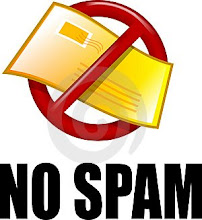
How They Attack
How Do You Know
- Messages that do not include your email address in the TO: or CC: fields are common forms of Spam
- Some Spam can contain offensive language or links to Web sites with inappropriate content
What To Do
- Install Spam filtering/blocking software
- If you suspect an email is Spam, do not respond, just delete it
- Consider disabling the email’s preview pane and reading emails in plain text
- Reject all Instant Messages from persons who are not on your Buddy list
- Do not click on URL links within IM unless from a known source and expected
- Keep software and security patches up to date
Cut Down on Spam Now
Are you tired of deleting email messages with subject lines like "kulegnji" or "vitriine" from your inbox? If spam has become the bane of your online existence, you’re not alone. According to Symantec’s latest State of Spam report, spam now accounts for 72% of all email messages. But junk mail is not just a nuisance and a waste of your time; it's also become a common way to commit fraud and spread malicious software. Make sure your PC is protected by antispam software. Both Norton Internet Security™ and Norton 360™ offer antispam capability to automatically filter out annoying, dangerous or fraudulent emails from your inbox.http://www.symantec.com/norton/security_response/spam.jsp









